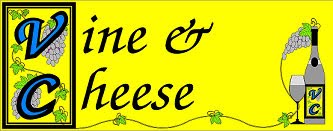Last night's tasting was one of the most successful in recent memory. The turnout was light, maybe a dozen folks at most, but the response to what we poured was fantastic. We unknowingly selected just the right lineup for this bunch and they quickly depleted my tasting supply including the Leitz Out German Dry Riesling which was a last minute addition when the Wentes sold too well prior to the event.
Johannes Leitz is the owner/winemaker of Leitz Out and his concern is located in the Rudesheim region of the Rheingau in Germany. The Leitz winemaking family traces its business back to 1744 with major disruptions in the twentieth century due in part to a couple world wars. Johannes took the reins unofficially in the mid eighties, officially in 1997, and because of his current successes his reign should continue well into the future. Shrewd land acquisitions in these years have increased Leitz holdings from 2.9 hectare to 40 hectare with 30 hectares of the most prime real estate being within Rudesheim proper. Because of their successes a new modern winery was constructed in 2010 on the property to meet the increased demand.
So what makes Leitz Out noteworthy? First the wine is dry compared to the stereotypical German mass market plonk which points up the second qualifier: dry unoaked white wine must have inherent character to carry the day or it will fail in any tasting or market placement. Thirdly Rudesheim Riesling is recognised internationally for its dry mineral-driven style accomplished of course by virtue of having the correct soils for the Riesling vines to flourish (or struggle) and here is where it gets complicated.
The ten Leitz vineyards in Rudesheim are at varying elevations with slopes up to 59 degrees requiring apporpriate terracing with all vineyards facing south. Leitz is another of what seems to be a growing number of wineries that feature a website that treats the casual reader as an adult. At www.leitz-wein.de one can learn of the four basic soil types in Leitz vineyards along with an explanation for their coming into being four million years ago during the ice age. A website link to Daniel Sogg's article, "Tasting the Earth" furthers the discussion of soil's contribution to wine. From Sogg: "The best wines come from soils that moderate the water supply. In wet regions good drainage is required; in dry regions, good retention." Seems too simple, right?
Saturday, January 5, 2013
Subscribe to:
Post Comments (Atom)




No comments:
Post a Comment